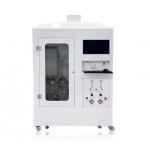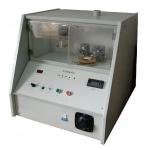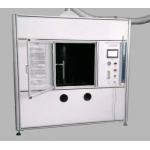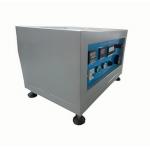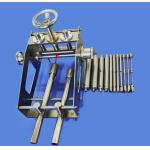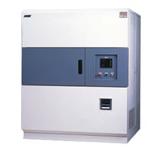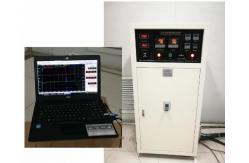1. Scope of application:
The cable thermal cycle heating test system conforms to the
technical specification of the Wire and Cable Quality Supervision
and Inspection Center "TICW 15-2012 Test Method for Airborne
Current Carrying Capacity of Single Cable". At the same time, it
can meet the requirements of GB/T12706-2008, GB/T 11017, GB/Z18890,
IEC60502, IEC60840, IEC60627 for circulating heating test of power
cables and circulating heating treatment of cables before water
permeability test.
2. Test mode:
1. The wire and cable record the temperature change of the
conductor under the action of a certain current; The It, Tt, and
I/T(t) curves were recorded
2. The wire and cable will automatically adjust the current through
the conductor at the temperature of the conductor; The It, Tt, and
I/T(t) curves were recorded
3. Features:
At the same time of constant temperature heating of the cable or
constant current heating of the cable, it can record the timely
change of the current of the cable at constant temperature and the
current, temperature and time curve, and can store and print
records
4. Test process and control method:
1. Test process:
The samples that have been tested in the early stage are spread on
the floor of the laboratory and heated by the wire until the wire
reaches a stable temperature, which is 5k ~ 10k higher than the
maximum temperature of the wire under normal operation. For
three-core cables, the heating current should go through all
conductors. The heating cycle is at least 8 hours. The temperature
of the conductor should be maintained within the specified
temperature range for at least 2 hours per heating cycle. After
that, it should be naturally cooled in air for at least 3 hours
until the conductor temperature is within 10K of ambient
temperature, and this cycle is 20 times.
2. Control method: The controller independently developed by the
company controls the input voltage of the transformer, so as to
control the output current, and at the same time uses the 4~20mA
output mode of the temperature controller to control the current
output, so as to achieve the test temperature of the cable.
3. There are two types of temperature sampling methods:
(1) Directly take temperature sampling on the test sample
(2) If the sample is to be kept for other tests and cannot be
perforated for temperature sampling, another cable of the same
specification is used for comparative loading, and the temperature
of the comparison loading sample is taken as the feedback value of
the loading current control to control the current of the test
sample
5.Test sample specifications:
Intercept two cable samples with a length of 10~15 meters from the
finished cable
6. Main parameters:
1. Current range: 50~3000A
2. Test temperature: 0~110°C, temperature measurement accuracy:
±1°C
3. Heating time: 0~9999.99H/M/S can be set
4. Cooling time: 0~9999.99H/M/S can be set
5. Cycle times: 1-9999 times can be set;
7. Main configuration:
1. Through-center heating transformer, two sets of 30kVA:
(1) Rated capacity: 30kVA;
(2) Rated input: 380V, 79A, rated output: 10V, 3000A;
(3) Transformer form: through-center, indoor use;
2. Ammeter: 3000.0A/5.0A two
3. High current transformer: 3000A, 0.5 grade; Two
4. PID smart temperature control table: two (one to monitor the
sample temperature and the other to monitor the ambient
temperature)
5. Diameter 1.5mm, length 150mm, two K-type armored thermocouples
(one each with a total length of 2m and 10m)
6. A set of test software, which can set the heating program
section and record relevant data and curves
7. A computer
8. Control cabinet: one set
9. Test fixtures: four groups
